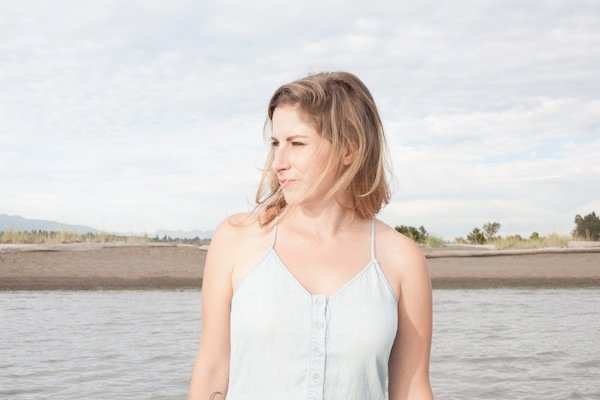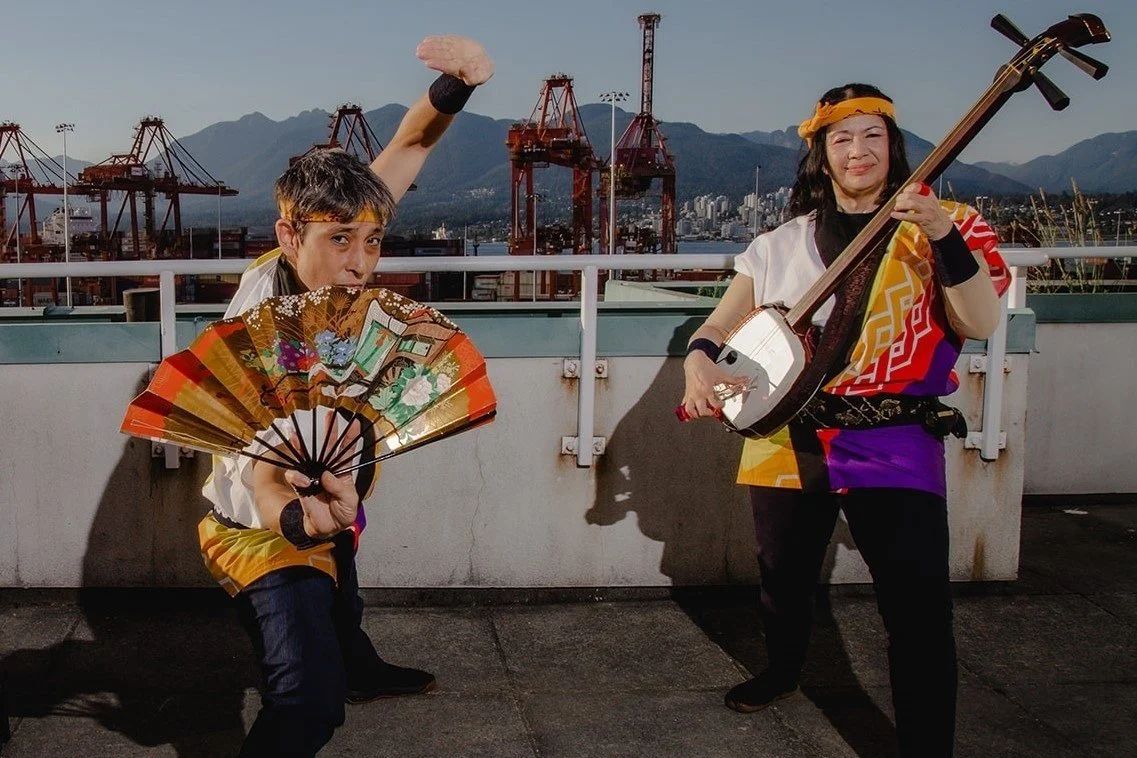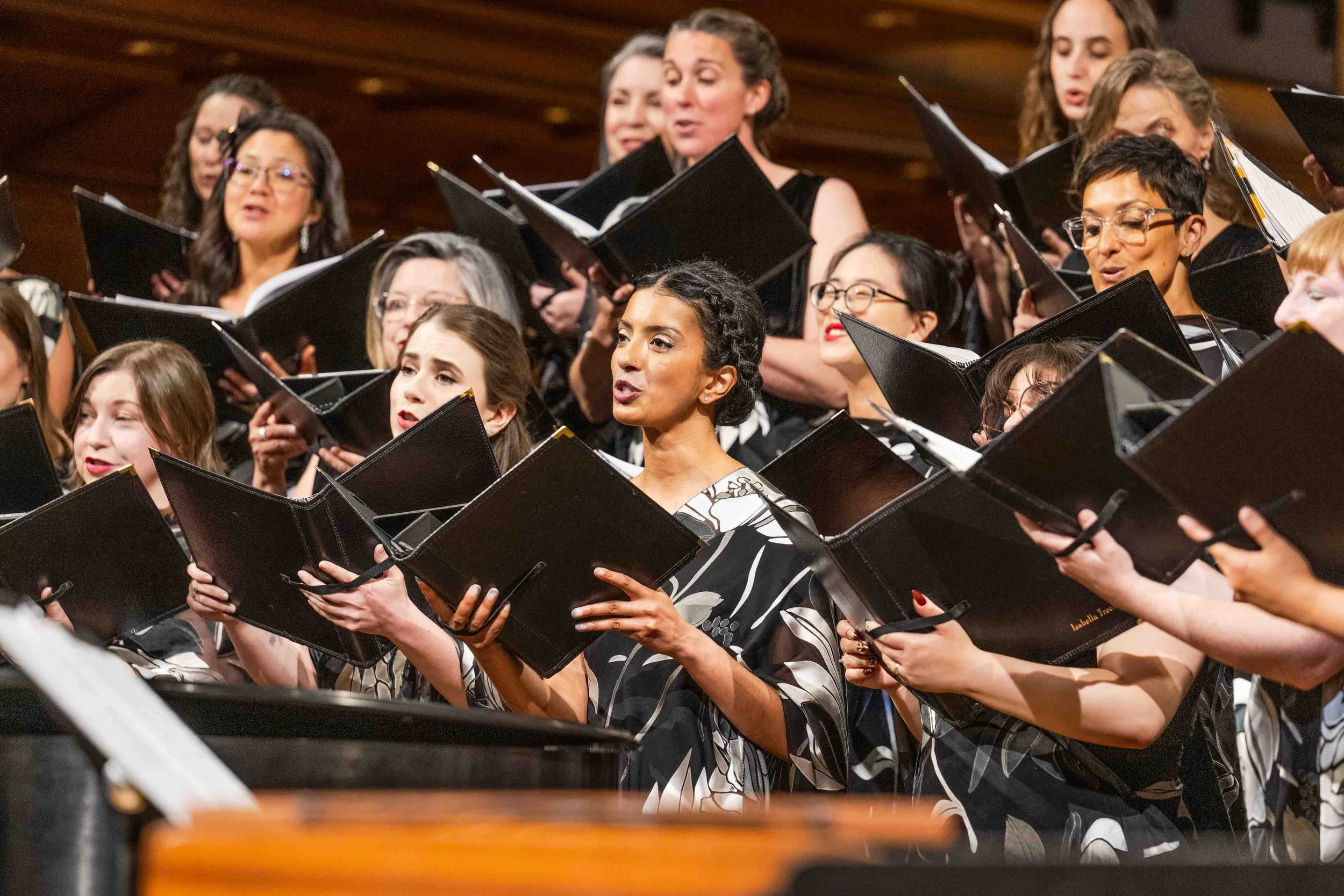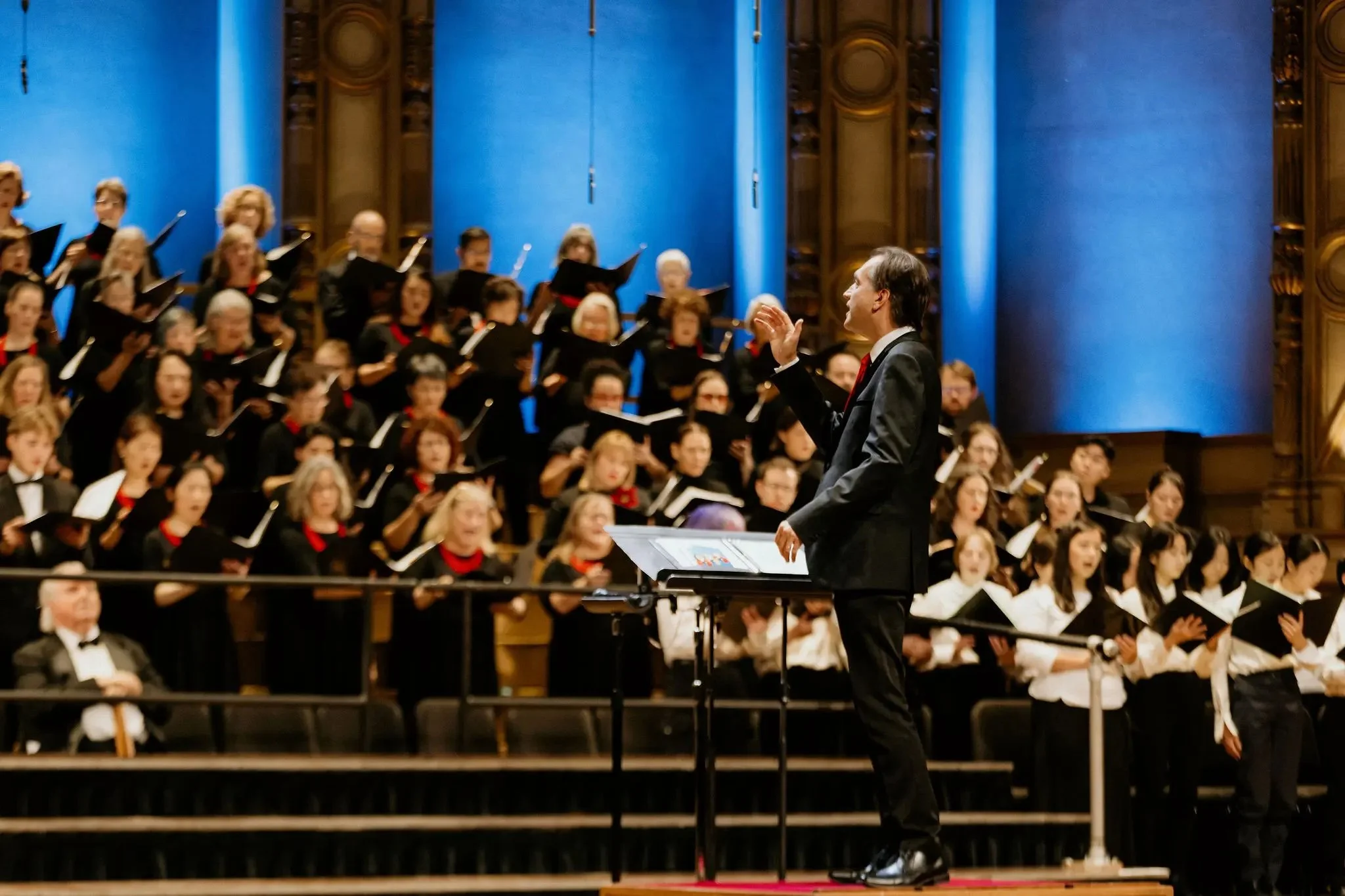Dreams of belugas and orcas give rise to Songs for a Lost Pod
Leah Abramson’s nine-song cycle has its world premiere in Vancouver
Leah Abramson has been dreaming of whales since childhood. Photo by Angela Fama
Music on Main and SFU School for the Contemporary Arts present Songs for a Lost Pod at the SFU Goldcorp Centre for the Arts’ Studio T on May 28 and 29 at 7:30 pm
THE UPCOMING PRODUCTION of Songs for a Lost Pod is a dream come true for Leah Abramson, and in more ways than one. Most simply, it marks the emergence of a theatrical song-cycle that has been several years in the making and that was originally scheduled to premiere at the PuSh International Performing Arts Festival last February. The winter resurgence of the COVID-19 virus scuttled that plan. But on a more metaphorical level, Songs for a Lost Pod can be traced back to the subconscious workings of Abramson’s mind, which has been supplying her with recurring dream visions of orcas and belugas ever since childhood.
Interpreting those dreams, she says in a telephone interview from her Vancouver home, has been a nearly life-long process.
“How I used to interpret them and how I interpret them now is different,” she explains. “My current interpretation is more looking at the feelings inside of the dreams….A feeling of loneliness, or a feeling of fear, or a feeling of uncertainty: those things are really strong inside the dreams.
“Do you want to hear a specific dream?”
Of course we do.
“The childhood beluga dream was, like, a beluga in a swimming pool, by itself,” Abramson reveals. “I was alone, too, so it was like I was its only friend, and the beluga whale was very lonely. I was visiting the beluga whale and keeping it company, but knowing that I’d have to go. I remember feeling so sad that the beluga was so lonely. I was maybe about five years old, and that intense feeling of loneliness is actually quite an overwhelming feeling for a small child to handle.”
Harder still, she continues, was that this loneliness was bound up with a sense of something missing in her family history that neither she nor the Abramson elders were able to articulate. “There were all these feelings swirling around,” she says, “and I couldn’t really make sense of them until I was much older and I’d had a grounding in what actually happened.”
What had actually happened was that Abramson’s grandparents had lost almost all of their relatives in the Holocaust, before living through the Communist revolution in their native Czechoslovakia and then arriving in vast and wintry Canada as refugees.
As Abramson began to piece together this history in her 20s, her whale dreams intensified, this time starring an enigmatic orca. The locale remained a familiar childhood haunt, but it was transformed in an unsettling way.
“It was still my grandma’s apartment building, with the pool, but then the whole thing’s flooded with water, and there’s this orca that I could communicate with psychically, like I did with the beluga,” Abramson says. “It was this giant whale beside me, and I was in a little boat, and I didn’t know what its intentions were. I didn’t know if it was a safe whale. It was trying to get me to play with it and come into the water, and I wasn’t really sure what I should do.
“It’s hard to interpret stuff like that, right?” she continues. “I mean, I’m not a Jungian analyst; I don’t have a grounding in all the archetypes and everything like that. I did a little bit of reading, but not enough to interpret it—although I’m sure there are lots of different interpretations.”
One thing that’s clear from listening to an earlier, purely musical version of Songs for a Lost Pod is that audiences are invited to link their own experiences of loss and community to her narrative. The central event in the cycle, which never explicitly references its creator’s own family trauma, is the 1969 capture of three members of the A5 pod of northern resident orcas in Pender Harbour; this was common practice at the time, with the Salish Sea supplying orcas to aquariums and theme parks without regard for the animals’ rarity, intelligence, and tight family bonds. By extrapolation, this ignorance can be extended to our ongoing fossil-fuel trauma; environmental grief, Abramson says, is as much a component of the project as any specific orca or human stories.
“It’s a nine-song cycle, and each song explores a different family of whales, or a human and a whale experience,” she notes. “And all the human/whale things are tied into the environment. Like, if you look at Lampedusa, it’s about human migration, and migrants who are drowning in the Mediterranean. And a lot of that comes from human conflict, which people are trying to escape, but also ecological devastation, where you have drought, and there’s not enough food, and conflict arises. It’s all so tied in; nothing stands outside of the environment.
For all of this pain, however, the stage version of Songs for a Lost Pod is going to be far from a horrific or upsetting experience. Abramson’s musical settings, which often incorporate whale song, are mostly gentle, and will be delivered by a stellar cast of musicians and singers, plus narration by Barbara Adler and exceptional visuals from Mind of a Snail. Expect immersive beauty, not overwhelming angst.
“I’m not sure if this is intended to give comfort, but I think only showing the horror is not only not accurate, it doesn’t really help us move forward,”Abramson says. “Giving us a way to process grief is helpful, and making sure that people are aware of things is helpful, but then how do you move forward? How do you process, and how do you move to a place where you can take action? When you’re in that trauma response, when you’re in that pain, it’s really hard not to stay there—and it’s not healthy to stay there forever.”














